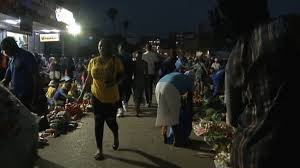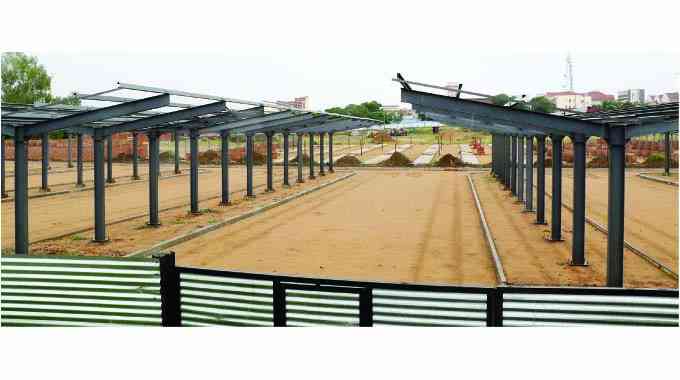
THE government announced a ban on the importation and sale of second-hand clothes, as well as street and night vending.
Local Government minister Daniel Garwe, addressing Harare city councillors and officials at Town House, claimed that informal trading practices were undermining formal businesses in the capital.
“The proliferation of street and night vending has destroyed the viability of formal businesses in our city,” he said.
“I would like to take this opportunity to advise that the government has banned the importation and sale of second-hand clothes.
“Consequently, street vending and night vending activities are also banned. Please take note, street fathers.”
We have every reason to believe that, like the proverbial ostrich, the government is burying its head in the sand.
It is both inaccurate and misleading to suggest that informal trading and the sale of second-hand clothes are the root causes of the formal sector’s collapse.
The real issues are systemic: inconsistent government policies, punitive tax regimes, currency instability and a chronically underperforming economy — all of which have been compounded by decades of poor governance.
- Benzema confident Real will reach UCL final
- Rigging exposes widening Mnangagwa, Chiwenga rift
- Health talk: Mental health disorders and demolitions in Zimbabwe
- Munatsi family speaks on banker’s shock death
Keep Reading
Just two months ago, South African retail giant Pick n Pay Group Limited announced a staggering R51 million loss from its Zimbabwean associate, Pick n Pay/TM Supermarkets, for the 53 weeks ending March 2, 2025.
The group subsequently wrote down its investment in the Zimbabwean operation by R254 million — reducing its 49% stake to zero — citing hyperinflation and severe currency volatility.
Meanwhile, suppliers are increasingly opting to sell their goods directly to informal traders, who pay in US dollars — a currency that holds value — rather than the ZiG.
This speaks to a deeper economic truth: the informal sector has become the backbone of Zimbabwe’s real economy, not a hindrance to it.
Since 2000, Zimbabwe has cycled through six different currencies.
The ZiG is just the latest attempt to restore confidence in a monetary system that has failed time and again. Industrial capacity has crumbled; former manufacturing hubs such as Graniteside and Workington in Harare and Belmont, Donnington, Steeldale, and Westondale in Bulawayo, have been hollowed out — now home to makeshift plastic factories or churches.
Government must start telling the truth or accept the truth of the current economic situation.
Banning informal trading and second-hand clothes trade without providing viable alternatives is not only ill-advised — it is reckless.
Informal trading has sustained livelihoods for decades. Markets like Mupedzanhamo, Sakubva Musika and Chinhoyi Rank have been economic lifelines for entire communities.
As United Zimbabwe Alliance leader Elisabeth Valerio aptly put it: “While the stated goal of this policy is to restore order in urban centres and bring regulation to informal trading, it is important that we approach this issue not only with law but with empathy, common sense and realism.
“Let us be honest with each other. Places like Mupedzanhamo clothed many of our people. Sakubva Musika has been the lifeline and business hub for countless families. To suddenly cut off these avenues without addressing the root causes is not only unfair — it’s dangerous and shortsighted.”
Zimbabwe’s informal sector is simply too large and entrenched for a blanket denialist policy to work.
The government must recognise this reality.
What is urgently needed are targeted policies that support informal traders — not criminalising them.
This includes: Access to microloans and credit facilities tailored to informal businesses, accessible and affordable banking services to encourage savings and financial growth.
The sector can also do with legal frameworks and permits that protect informal traders under the local authorities; affordable housing and vendor accommodation in urban plans, ensuring dignified working conditions and revival of funding models, such as the Distressed Industries and Marginalised Areas Fund, to complement informal trading and support reindustrialisation.
Instead of treating informal traders as criminals, government must view them as essential economic actors — innovators surviving in a broken system.
Blanket bans will not fix Zimbabwe’s economy.
Policies grounded in truth, empathy and practical economics just may.









